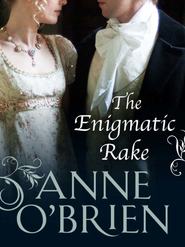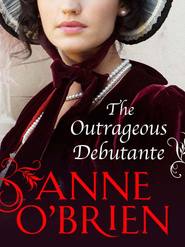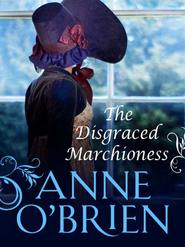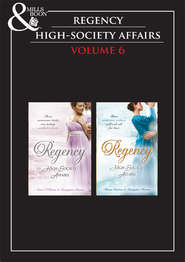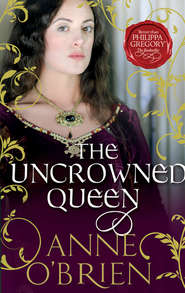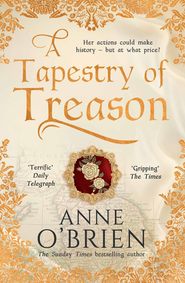По всем вопросам обращайтесь на: info@litportal.ru
(©) 2003-2025.
✖
Marriage Under Siege
Настройки чтения
Размер шрифта
Высота строк
Поля
‘I am sure I shall soon discover. But tell me, Sir William, how did my cousin’s loyalties lie in present politics?’
‘Royalist, of course. Hereford is well under the command of Coningsby as Governor in the city. He and I muster the trained bands as required. There has been little unrest so far. The nearest Parliamentary garrison is Gloucester under Colonel Massey and that is too far away to be much of a threat in everyday matters. So we organise affairs to our own liking with little interference from those self-serving blackguards such as John Pym in London.’
Mansell took a deep breath. It really would not be politic to remain silent longer on such a crucial issue, however difficult the outcome. His eyes held Sir William’s in a forthright stare. ‘Perhaps I should tell you clearly, Sir William. My own sympathies lie with Parliament. I cannot in all conscience support a man such as Charles Stuart who would bleed his country dry, ignore the advice of Parliament—or even its very existence—and would have used the Catholic Irish to invade and subjugate his own people. I am not a Royalist—and nor would I be content to keep my mouth shut and my head down, as you put it. I will speak up for my beliefs, and act on them if necessary.’
Silence. As sharp as the honed blade at Sir William’s side.
Sir William took another gulp of ale. ‘Well, my boy.’ He eyed Mansell quizzically, perhaps a hint of respect in his fierce eyes under their grizzled brows. ‘That will put the hunting cat amongst the local pigeons. I like a man who knows his own mind and is not afraid to state it. But are you sure? I had never expected your father’s son to speak such treason. And neither would he! He will be turning in his grave to hear you!’
Mansell laughed, but harshly, and the bitterness did not escape Sir William. ‘Oh, yes. I am sure. Will this situation—your family connection with a traitor—make matters uncomfortable for you?’
‘Yes. It will. No point in beating about the bush. My wife will expect me to welcome you for the sake of your father and mother. My political associates will damn you as spawn of the Devil. So what am I expected to do?’ Sir William finished the ale and wiped his mouth with the back of his hand as he contemplated the future. The lines of authority and experience around his eyes deepened as he weighed the situation. Mansell simply waited for him to come to a most personal decision, hoping that he had not totally alienated this proud but honest man. He was not disappointed.
‘I will try not to forget what I owe to family. Or the strength of historical connection. I owe that to your family and mine. But I never dreamed … Did your father know of your … your political inclination before he died?’
‘Yes, he did. And although he could not support me—he remained true to the Stuart cause until the end—he did not try to dissuade me. But our relationship was not easy in the months before he died.’ Mansell’s eyes were bleak as he remembered the pain and disillusion which had marked his father’s last days.
‘Well, then. It has indeed been a day of revelation.’ Sir William hesitated a moment. ‘It could put you in a dangerous position, you realise.’
‘How so? I am hardly a threat to my neighbours, outnumbered as I am.’
‘So it would seem. But a Parliamentarian stronghold such as this in a Royalist enclave? A severe weakness, many would say, particularly as some of your neighbours might believe that your potential influence is now too great, given your fortunate increase in wealth and property. Some might decide that it would be best policy to divest you of some of that influence. Permanently!’ He showed his teeth without humour. ‘Some such as Fitzwilliam Coningsby!’
‘You are surely not thinking of a physical assault, are you?’ Mansell did not know whether to laugh at the prospect or to be horrified.
‘I hope not. But put your mind to your other properties. It would do well for you to see to their security before word of this gets out. As it most assuredly will.’
‘And you would give me that time, Sir William?’
‘I could. For the sake of family, you understand. But don’t expect too much of me. I am not enamoured of the work of Mr Pym and his rabble of supporters who would oust the rightful monarch—and replace him with what? God only knows. It would put all our lives and property in danger if we allowed such a thing to happen. Yours too, my lord.’
‘Now is not the time for such a discussion. But I am grateful for your advice and tolerance, Sir William. I hope that I can repay it.’ His features were softened a little by a genuine smile. ‘And not put you into too great a difficulty with Lady Croft.’
Sir William grunted, turning to collect his cloak and hat from the chest against the wall. ‘I must be going. What will Lady Mansell do now?’
‘I have no idea. Although I expect that she is more than well provided for. I presume, given the wardship, that she has no family to return to.’
Sir William shook his head. ‘These are not good times for young women, particularly wealthy ones, to exert their independence.’
‘I am aware. That, Sir William, is the next problem for me to consider.’
‘I wish you good fortune. And if you will take my advice, you will mention your allegiance towards Parliament to no one, at least not until you are certain that you can hold your property. I would hate you to lose it before you have taken possession!’ He laced his cloak and pulled his hat low on his brow. ‘Take care, my boy. Take care.’ Sir William clapped Mansell on the shoulder. ‘Local politics run very deep.’
The guests had all gone at last. Honoria, Lady Mansell, stood with her back to the smoking fire, listening to the silence around her. Absently she stroked the coarse shoulders of Morrighan, the wolfhound, who pressed close. Now what? Until this moment there had been so many necessary tasks for her to supervise or undertake, so much to fill her mind. Now there was nothing—until the business dealings with Mr Wellings, Edward’s lawyer, on the following morning. No one had taken up the offer of hospitality. How would they, in all honesty, wish to stay in this dismal castle, the very air redolent of despair, of hopelessness. Even Sir Joshua had gone to pack his few possessions prior to making the short journey to Ludlow before night fell. What should she do now? Her brain seemed to be incapable of coming to any sensible decision. All she wished to do was retire to her room and sleep for a week. Or weep from the relief that she was no longer governed by Lord Edward’s demands. But she would not! Tears solved no problems.
The great door at the end of the Hall opened to admit a blast of cold air and the new lord. He hesitated for a moment as he saw her there and then, as if reaching a difficult decision, walked slowly towards her, eyes intent. She lowered hers. It would not do to increase her vulnerability by a show of emotion or uncertainty. Or weakness. If she had learnt anything at all in her short life, it was just that.
She remembered him vividly from their first encounter at Whitehall. He had not remembered her, except as a vague acquaintance—indeed, how should he? She was not a noticeable person, would not draw a man’s attention in a crowd. Her hair, her face, her figure were all acceptable, she supposed, but really quite commonplace. Certainly not attractive enough to catch the eye of a man such as Francis Brampton, as he was then styled. But she remembered him.
And she remembered his wife. His betrothed as she had been then in the final months of 1640. Katherine. A lively, laughing sprite of a girl. A vibrant beauty with slender figure, tawny hair and jade green eyes, a young girl experiencing the pleasures of Court for the first time—the allure of the masques, the songs, the dancing. And they had so clearly been in love. A glance. A touch. A smile. Such small gestures had shouted their passion to the roof timbers. So much promise for the future of their marriage together. With an effort of will, Honoria closed her eyes to blot out the memory and governed her mind against the envy that had engulfed her and still had the power to bruise her heart. How could her own experience of marriage have been so empty of love, so painful and humiliating?
But, after all, what right had she to complain? Katherine was dead.
Honoria saw Mansell now when she raised her eyes once more, her control again securely in place, her lips firm. Not a courtier, in spite of his appearance at the sophisticated Court of Charles and Henrietta Maria, but rather a man of action. A soldier, perhaps. She knew that he was a younger son and so had been prepared to make a name for himself as a soldier or, more likely, politician. But then his elder brother had died, in a minor, meaningless skirmish against opposing forces near their estates in Suffolk, thus thrusting Sir Francis, as he became, into the role of head of family, into the elite of county society.
Honoria studied him. He was tall and rangy, well coordinated with long, lean muscles. Hard and fit, he carried no extra weight, his black velvet coat emphasising his broad shoulders and the sleek line of waist and thigh. She could imagine him being equally at home in the saddle or wielding a sword in battle. He walked towards her with long strides, with a natural grace and elegance, of which he was probably unaware.
He was not conventionally handsome, she decided—his features were too strong for that. But striking. Definitely not a man to be ignored in any circles. His hair, which waved to his shoulders, was dark brown with hints of gold and russet. His eyebrows were darker, drawing attention to remarkable pale grey eyes, which could appear almost silver when caught by the light, or dark and stormy when passions moved him. They were beautiful, she decided. And they made her shiver a little with their intensity. A masterful nose and firm lips, now set in a straight, uncompromising line. No, not handsome, but a striking face that would be impossible to overlook or forget. And made more memorable by a thin scar, which ran along his brow from his temple to clip the edge of one fine eyebrow. An old scar, thin and silver against his tanned skin. Honoria found that she could not take her eyes from him. And yet she was forced to acknowledge that he would be a dangerous man to cross. His face was imprinted with harsh lines of temper and a determination to have his own way, and it seemed to Honoria, given his confident arrogance, that he would enjoy much success.
She sighed a little. What would it have been like if she had been wed to Francis Brampton—Lord Mansell, as she must now learn to think of him—instead of Lord Edward? Handsome the new Lord Mansell might not be, but she had been well aware of the number of eyes that had followed him at Court. Followed him with feminine interest and speculation in spite of his recent betrothal. She herself had not been immune … But where had that thought come from? She pulled her scattered wits together. She had no idea what had prompted such a daydream—and it would not do to think further along those lines. To show emotion was to put yourself in the power of those who witnessed it. She must keep her feelings close at all costs.
Mansell continued to approach, unaware of the disturbing thoughts that ran through the lady’s mind. No, he decided, he hardly remembered her from their first meeting. Only a vague impression of a young woman within Denham’s family. How should it have been otherwise when he had been caught up in the glory of new love, held captive by Katherine’s vivid face and vibrant colouring. God—how he had loved her! And been consumed by the miracle that she should love him. It seemed like yesterday—and yet a lifetime ago. No! He would not have been aware of the woman who stood before him, shrouded in black and an indefinable air of desolation. Attractive enough, he supposed. Well born, rich—but nothing to compare with the girl who had shared his childhood and had bestowed on him her love and her heart so willingly. He could almost hear Katherine’s laughter. He closed his mind against the sharp lance of pain, forcing his thoughts back to the immediate problem. At that moment he sincerely doubted if Edward’s widow ever laughed!
The widow raised her eyes to his as he halted before her. ‘I trust that the arrangements were to your liking, my lord?’
‘Excellent—in the circumstances.’ His smile of thanks warmed his features. ‘I understand from Foxton that I have you to thank for the arrangements—and the spread of food. I have to admit that I had not given it much thought.’
‘How should you? Men rarely do. You merely expect it to be done.’
Mansell raised his brows, the smile fading, at the quick response. Had she intended such needle-sharp judgement? He could detect no malice in the lady’s face. Nothing except for a soul-crushing weariness that she could not disguise. He chose to control his instinctive reaction and bit down on a curt reply.
‘I could have no complaint, and nor could our guests, my lady. Unless it was the length of time it took the Reverend Gower to bury my late unlamented cousin.’
As on the previous evening, it crossed his mind that perhaps that was not the most tactful of comments to make to Edward’s widow, but she accepted the criticism of her lord with her usual lack of response. No touch of humour. No smile. Merely a frigid acceptance.
‘I believe that your family connection with Lord Edward is somewhat distant, my lord?’
‘Indeed.’ Mansell moved closer to the fire. ‘Some three generations back, I believe. My great-grandfather was brother to Edward’s great-grandfather, which makes us … well, second or third cousins, I suppose. And I had no expectation of this inheritance, of course.’
‘I heard about your brother’s recent death, my lord. And that of your wife and son. I am sorry for your tragic loss. It must be very hard to accept it.’ He heard a note of true regret in her voice. Even as he mentally withdrew from further expressions of sympathy—had he not suffered enough for one day?—he saw a shiver run through her so that he surprised himself and her by reaching out to cover her clasped hands with his own. And he kept the contact even when the wolfhound showed her teeth in silent warning.
Her hands were icy.
‘You are frozen, my lady. This is no place for you.’
Honoria choked back the sudden threat of tears at such an unexpected expression of consideration, silently horrified at how little it took to disturb her.
‘It is no matter,’ she answered in a low voice. ‘I will see to the clearing of the repast now. I will talk to Master Foxton and Mistress Morgan.’
‘You will not.’ Sir Francis turned her hands within his own, aware of the soft skin and slender fingers. Such small hands to be burdened with such responsibility. He snapped his concentration back to the immediate. ‘Is there a fire in the solar?’
‘I believe so.’
‘Then come. You have been on your feet all morning and should rest a little. And some wine will be acceptable, I think.’
‘But Sir Joshua—’
‘Sir Joshua can fend for himself admirably. Have you eaten today?’






